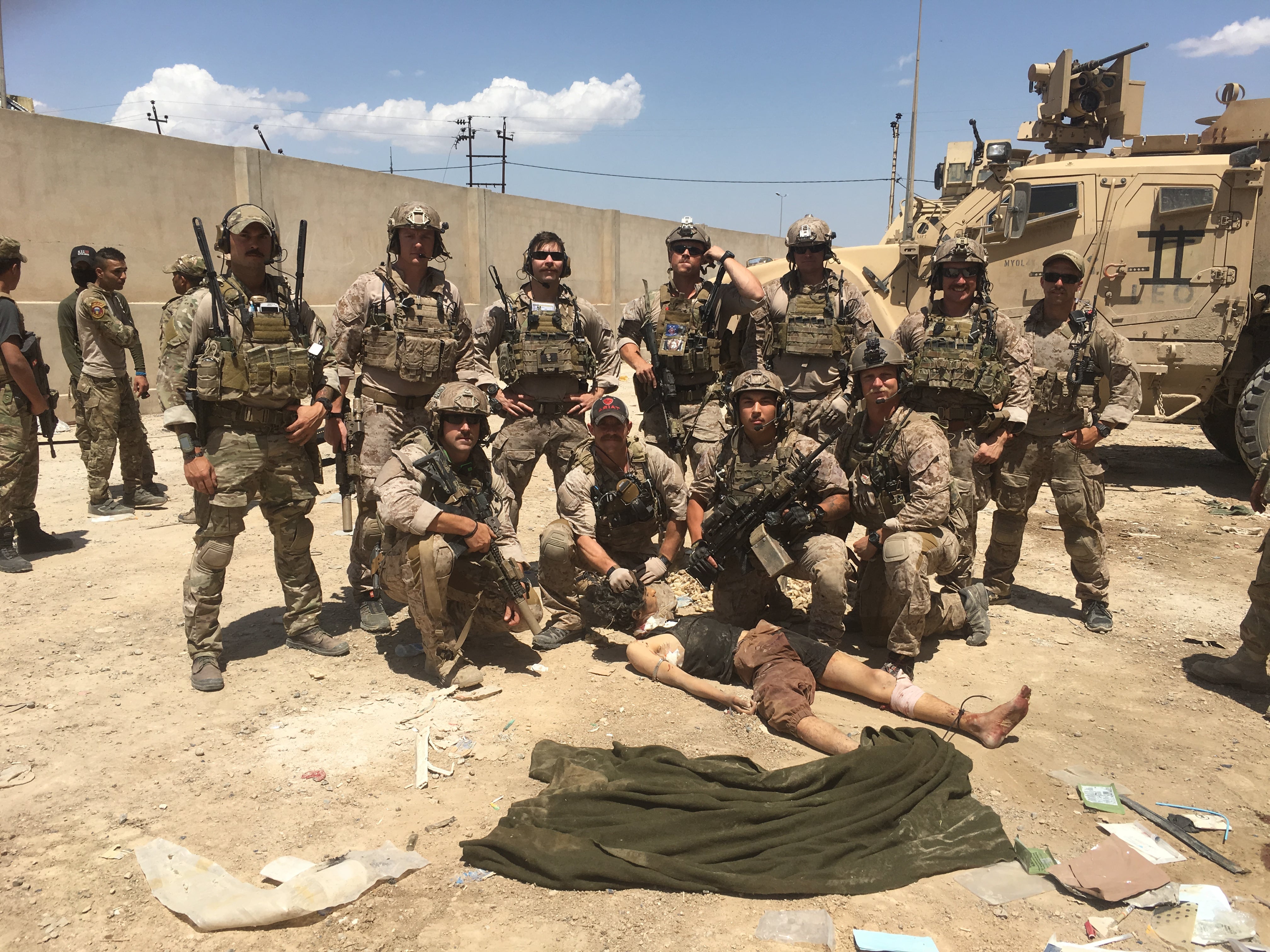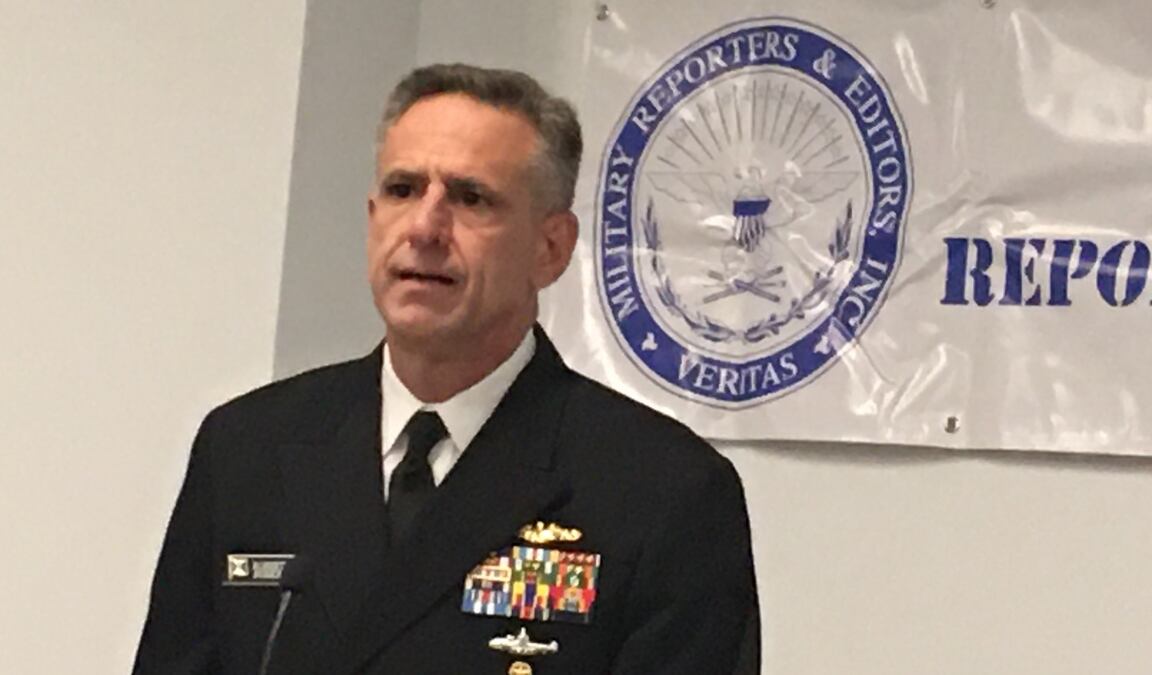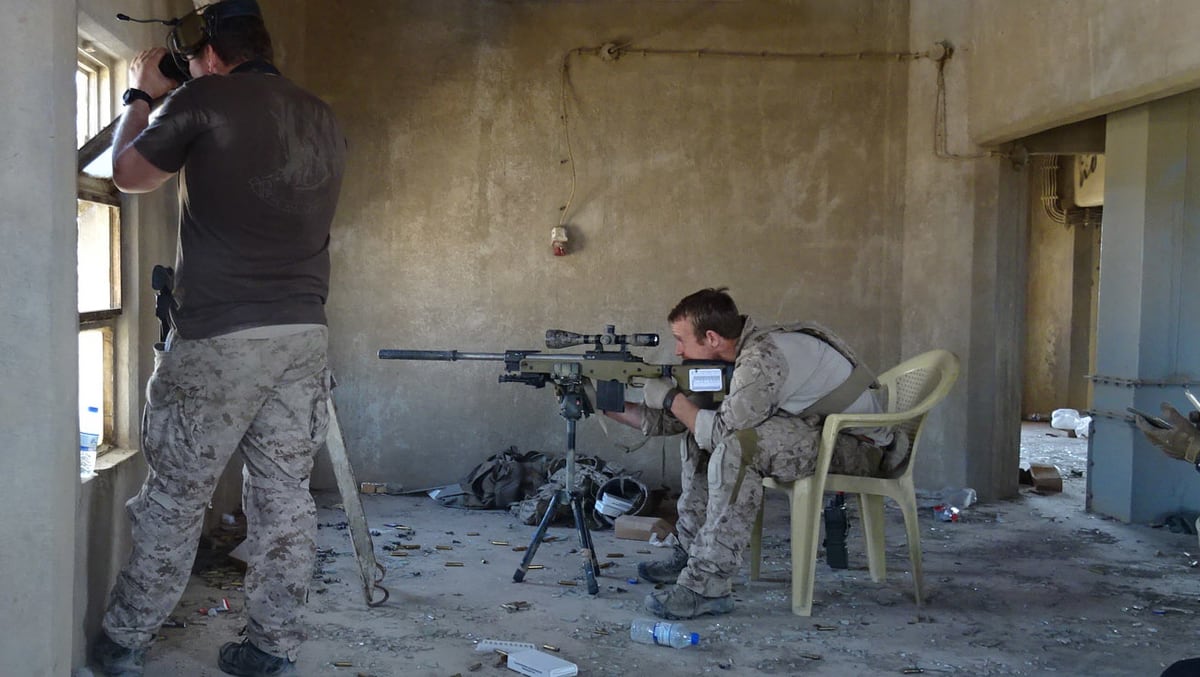The long saga of accused SEAL war criminal Special Warfare Operator Chief Edward “Eddie” Gallagher might’ve come to an end on Tuesday, with a ruling that will let him retire as a petty officer first class, convicted only of posing for a photo with a dead detainee.
In a prepared statement emailed to Navy Times by his spokesman Cmdr. Nate Christensen, Chief of Naval Operations Adm. Mike Gilday retained the spirit of a military jury’s recommended sentence, if not the letter of the law.
“After careful consideration as the convening authority, Adm. Gilday decided to uphold the sentence as adjudged by a jury of Gallagher’s peers, but disapproved the automatic reduction in rate to E-1,” wrote Chistensen. "Consequently, Gallagher will remain a First Class Petty Officer (E-6).”
On July 2, a military panel of his peers at Gallagher’s San Diego court-martial trial cleared him on premeditated murder, obstruction of justice and all other major charges tied to a 2017 deployment with Alpha Platoon, SEAL Team 7, to Iraq.
Marred by allegations of misconduct by military prosecutors and Naval Criminal Investigative Service agents, the case against Gallagher had collapsed at trial and he was convicted of only one remaining charge, posing with the body of a dead Islamic State prisoner of war, an allegation he never denied.
Others in Gallagher’s platoon not only stood with him next to the corpse but broke off for individual snapshots with the body — and none faced charges except the chief.

Had he not been sent to a general court-martial trial for the other charges, Gallagher likely would’ve faced administrative punishment, such as a written reprimand, not the removal of a pay grade by a military jury.
On July 3, the panel of his peers returned to recommend that Gallagher be reduced to the pay grade of E-6, forfeit $2,697.00 for four months and be confined for four months — although he’d already served twice that long behind bars during pretrial confinement.
Navy judge Capt. Aaron Rugh reduced Gallagher’s forfeiture to two months. Finding that authorities had violated Gallagher’s constitutional rights before the trial, he’d already sanctioned the prosecution team before the trial even kicked off.
Part of Rugh’s punishment included booting Cmdr. Christopher Czaplak, the lead prosecutor, for his role in a warrantless surveillance program cooked up with NCIS to track emails sent by defense attorneys and Navy Times.
Prosecutors and agents also were accused of manipulating witness statements; using immunity grants and a bogus “target letter” in a crude attempt to keep pro-Gallagher witnesses from testifying; illegally leaking documents to the media to taint the military jury pool; and then trying to cover it all up when they got caught.
A public firestorm erupted over the Navy’s treatment of Gallagher, sparking a March 30 order by President Donald J. Trump to free him from pretrial confinement in San Diego’s Naval Consolidated Brig Miramar.
Gilday caught the case because his predecessor, Adm. John Richardson, on Aug. 3 removed all court-martial authority from Navy Region Southwest for Gallagher, making the CNO the convening flag officer for post-sentencing.
Richardson also directed authorities in San Diego to dismiss all charges against Lt. Jacob X. “Jake” Portier, the officer in charge of Gallagher’s platoon in for allegedly helping his chief cover up the war crimes, charges the commissioned officer also denied.
An ongoing review by VCNO Adm. Robert Burke into the way the sea service recruits, trains and retains a competent and ethical corps of uniformed attorneys is due to arrive on Navy Secretary Richard V. Spencer’s desk by Nov. 22.
RELATED

Shenanigans by police and prosecutors and the lack of punishment for Gallagher’s platoon mates helped form the clemency appeal filed Oct. 1 by the SEAL’s civilian defense attorney, Timothy Parlatore.
Navy regulations mandated that because Gallagher was sentenced to the brig, he had to be automatically reduced to E-1, an outcome Parlatore argued the military jury never anticipated in their sentence.
After reviewing the record of trial and Gallagher’s clemency request, CNO seems to have agreed partly with Parlatore.
By keeping the highly decorated Gallagher as a first class petty officer, Gilday allows the SEAL to retire after more than two decades in uniform with a high year tenure determination that shaves little money off his military pension.
The estimated value of his pension will remain pegged at about $1.5 million before he dies, not the $654,135 he would’ve earned as an E-1 or the $1.7 million he would’ve earned as a chief.
But Gilday — also a highly decorated combat veteran — maintained the spirit of the panel’s recommendation by barring Gallagher from the goat locker.
“Eddie Gallagher is glad to finally be heading toward retirement, but we would’ve preferred for him to have retired as a chief petty officer,” Parlatore told Navy Times on Tuesday afternoon.
“What’s truly unfortunate is that Gallagher is the only person who seems to have been punished so far in this matter. NCIS, Navy JAGs and his command at Naval Special Warfare have not been held accountable for the illegal acts they committed against him and it appears that they might never be held accountable.”
Parlatore indicated that he and Gallagher are “still exploring all options,” including potential clemency appeals to Defense Secretary Mark Esper and President Trump, but said no paperwork has been filed to prod the case up the chain of command or bring it to the attention of lawmakers on Capitol Hill.
